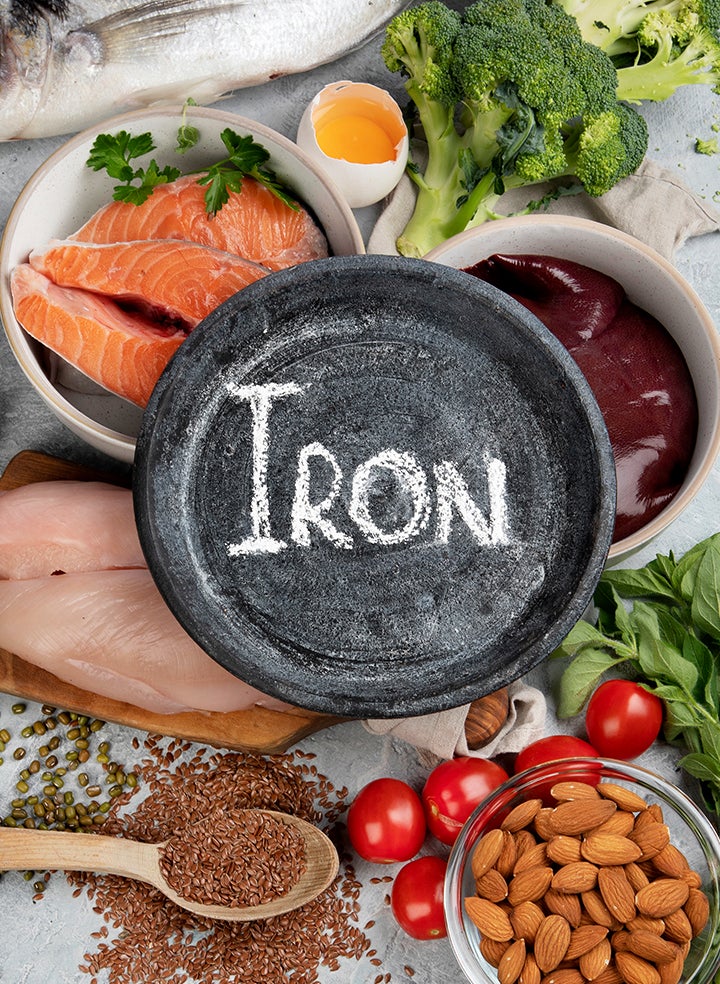Preventing Anemia
Anemia makes it harder for your blood to carry oxygen through your veins, learn the types and how to prevent it.

Anemia is a condition where there are not enough healthy red blood cells to supply the body’s tissues with all the oxygen they need. Red blood cells pick up oxygen from the lungs and travel through your body to deliver it to your body tissues. When you do not have enough red blood cells, or when some of your blood cells are less able to carry oxygen or move efficiently through your veins, you can feel weak and fatigued.
What are the symptoms of anemia?
Anemia symptoms can vary in severity and length. The symptoms include:
Weakness
Fatigue
Irregular heartbeat
Dizziness
Light-headedness
Pain in the chest
Pale or yellowish skin
Headaches
Cold hands and feet
What causes anemia?
There are several types of anemia, each with a different cause that results in the blood being unable to carry sufficient oxygen through the body.
Aplastic anemia is a rare condition where your bone marrow stops making enough new blood cells. This can be the result of exposure to harmful materials. Avoiding exposure to toxic chemicals and using antibiotics only when needed are two ways you can reduce your risk of developing aplastic anemia.
Sickle cell anemia is a genetic condition that affects the shape of red blood cells. Instead of being round, the cells are shaped like sickles or crescent moons. These abnormally-shaped cells can get stuck in small blood vessels, slowing or preventing blood flow to the rest of the body. There is no known prevention or cure for sickle cell anemia, but there are ways to alleviate the symptoms.
Thalassemia is a hereditary type of anemia. People with thalassemia have fewer red blood cells and less hemoglobin – the substance in red blood cells that is responsible for carrying oxygen.
Iron deficiency anemia is a common illness that results from low levels of iron in the blood. Iron is a key component of hemoglobin, the substance that allows red blood cells to carry oxygen. Iron deficiency anemia is caused by insufficient intake or poor absorption of iron. In many cases, it can be prevented or reversed through supplements or dietary changes. Always consult your doctor before taking supplements, as excessive nutrient intake can cause serious complications.
Vitamin deficiency anemia occurs when the blood does not contain enough of certain vitamins that are involved in oxygen transport. This can include folate and vitamin B12. Low levels of these vitamins in the blood can be the result of dietary choices or a reduced ability to absorb or process the vitamins. When the intestines are unable to properly absorb B12, it is called pernicious anemia. Dietary changes and supplements can prevent or remedy anemia caused by vitamin deficiencies.
How can I prevent anemia?
While some types of anemia are hereditary and cannot be prevented, several types can be avoided through dietary and lifestyle changes. There are several steps you can take to prevent the types of anemia that result from dietary deficiencies or bone marrow damage:
Eat a diet rich in a variety of vitamins and minerals, especially iron, folate, and vitamin B12.
If your diet is primarily plant-based, vegetarian, or vegan, ask your doctor if you might need dietary supplements.
Eat iron-fortified cereals and breads.
Reduce your consumption of caffeinated beverages like coffee, tea, energy drinks, and soda.
Follow all safety procedures when working with toxic chemicals, including materials that contain lead.
If you think you might have anemia or want advice on how to prevent it, talk to your medical provider or visit a WellNow clinic for an exam and consultation.
